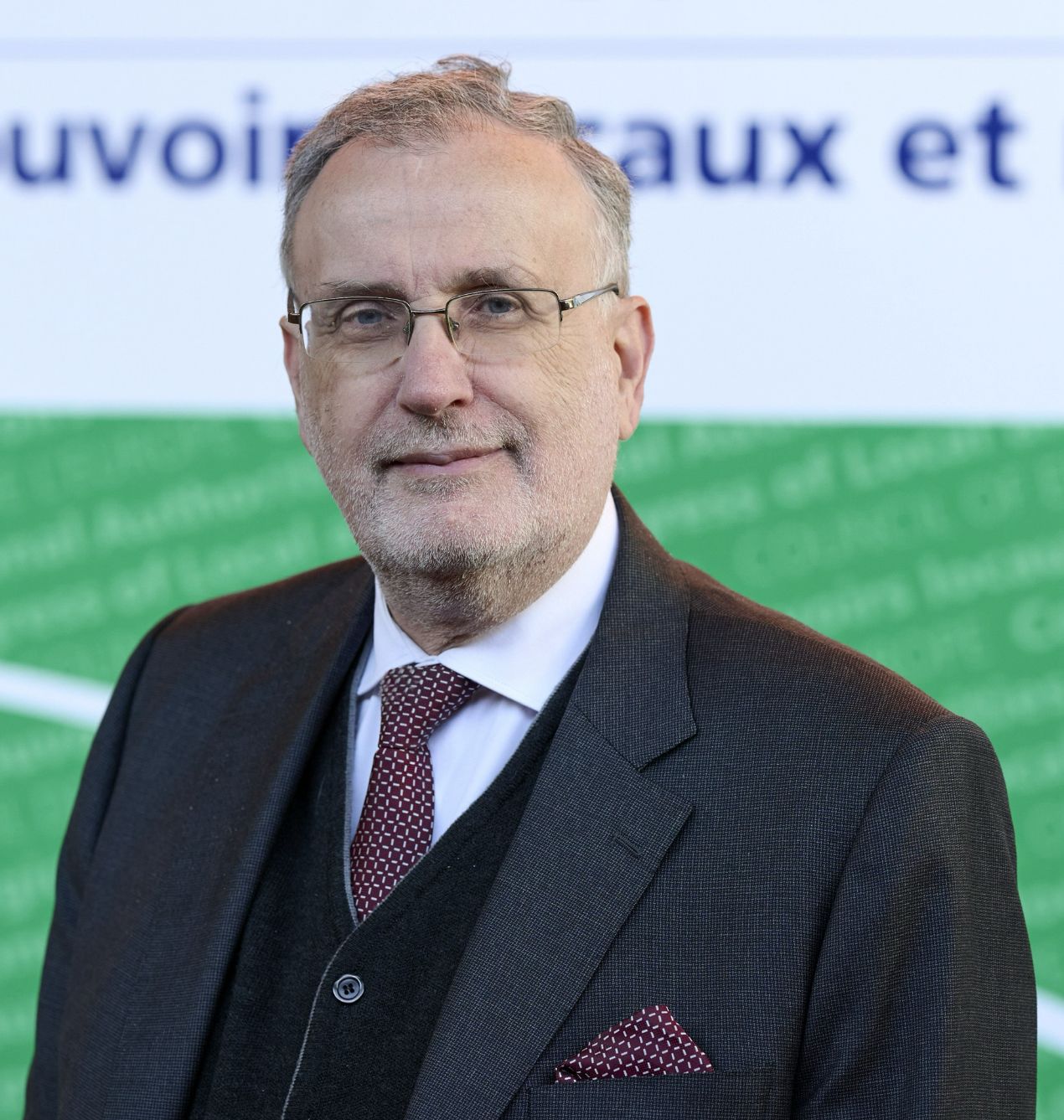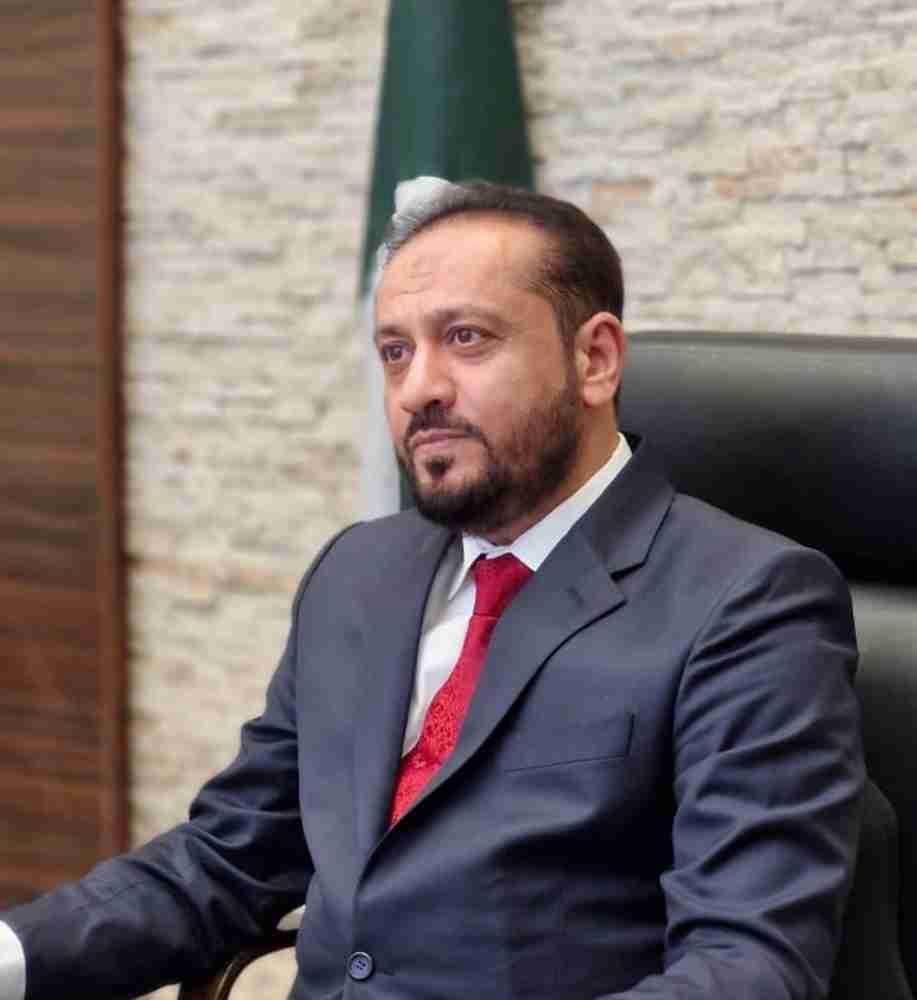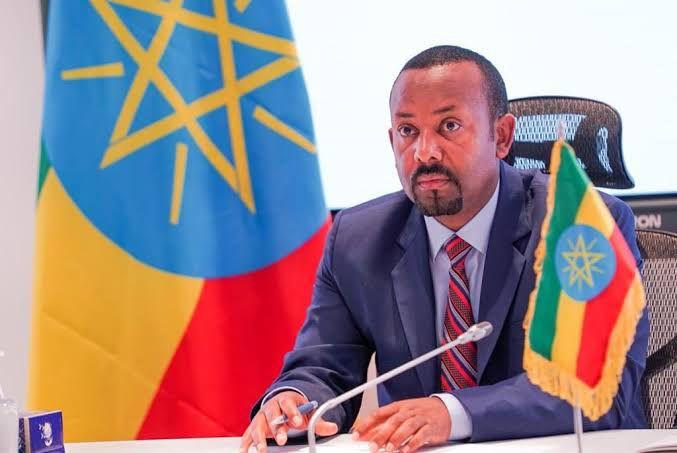By Abdul Rafay Afzal (Editor in Chief – The Advocate Post)
“Europe Must Wake Up”
At a time when the world faces renewed conflict, democratic backsliding, and the urgent challenges of climate change, the role of local and regional authorities has never been more critical. To explore these themes, Abdul Rafay Afzal, Editor in Chief – The Advocate Post conducted an Exclusive Interview with Mr. Marc Cools, President of the Congress of Local and Regional Authorities at the Council of Europe, and a seasoned Belgian politician who has served both in the Brussels Parliament and on the European stage.
In this wide-ranging discussion, Marc Cools reflects on his personal journey into politics, the pressures facing European democracy, and the lessons Europe can share with regions as diverse as South Asia, the Horn of Africa, and the Caribbean. He speaks candidly about the challenges of polarization, the rise of populism, and the vital importance of local democracy in building resilience against authoritarianism.
From Somalia’s instability to Somaliland’s rare democratic success, and from the climate struggles of small island states like St. Vincent to the global potential of “Type II” diplomacy, Marc Cools offers insights into how Europe and the wider world can navigate an era of profound uncertainty and why he believes local democracy remains the cornerstone of global stability.
Q.1 You’ve served in various roles, from the Brussels Parliament to the Council of Europe. What motivated you to take on these different leadership positions, and how do they shape your vision today?
I believe that change can only be achieved through commitment and that with optimism and determination, we can achieve a great deal, even if we cannot achieve everything. This is what motivated me to become a student delegate during my studies, then to stand for local elections in my municipality and subsequently in other elections.
I am a particular believer in local democracy because it is at this level of government, closest to the citizens, that contact between elected representatives and citizens and citizen participation is possible.
‘Nothing can distort the true picture of world events more than to regard one’s own country as the center of the universe and to judge all things by that fixed point.’
These are the opening lines of the book Anatomy of Peace, published by American journalist Emery Rêves in 1945 at the end of the Second World War. These words seem prophetic when we consider the return of war to Europe and the Russian Federation’s aggression against Ukraine.
One of the most significant achievements of the Council of Europe and other international forums is that they improve our knowledge and understanding of others, of our colleagues from other countries who face realities that are sometimes different and sometimes similar to our own.
Q. 2 While Europe is often seen as stable, it is also facing evident challenges, from energy crises and migration pressures to democratic resilience and economic uncertainty. What do you see as the most urgent problems local and regional authorities are working on right now, and how is the Congress of Local and Regional Authorities helping address them?
One of the greatest challenges facing Europe today is the return of war to the European continent with the Russian Federation’s aggression against Ukraine. A second challenge is the end of happy globalization and the return of the primacy of force in international relations. A third challenge is the rise of populism and radicalism of all kinds, which threaten democracy.
Europe, faced with the rise of states that want to be empires, must wake up and assert itself. Both the Council of Europe and the European Union can contribute to this. A new impetus must be given to European integration. Europe cannot limit itself to a single market.
Since the 2008 financial crisis and the COVID epidemic, there has been a certain trend towards recentralization in Europe. We are combating this trend by increasing the number of monitoring visits to assess the implementation of the European Charter of Local Self-Government.
Another reality is that in several European countries, mayors are under pressure, with acts ranging up to the assassination of the Mayor of Gdansk in Poland. Hate speech and fake news on social media at the local political level are a new reality to which we are devoting much of our work. We strongly emphasize that our competitors or political opponents are not enemies.
We are witnessing significant setbacks for democracy in two European countries, Georgia and Turkey. In Turkey, there have been massive waves of arrests of opposition mayors. We are stepping up our fact-finding missions in both countries and are attempting to engage in dialogue with the authorities to bring about a return to democratic practices.
Q.3 What bold steps do you believe the Council of Europe could take to lead not just within Europe, but as a model for local and national democracy Globally?
Europe must be the primary partner for States seeking independence from superpower domination. Its vocation and greatness lie in asserting its place among nations through dialogue, peace, and respect for human rights, minorities, and international law. The Council of Europe (46 states, all except Russia and Belarus) advances these values globally. At the UN General Assembly in September 2025, Secretary General Alain Berset stressed renewed international commitment to human rights, democracy, and the rule of law for global security.
On local democracy, the Congress of Local and Regional Authorities engages in UN and OECD conferences and the annual World Forum for Democracy in Strasbourg (“Democracy in peril: how can we revive it?”). It builds ties with bodies like the African Local Authorities Forum and already runs cooperation projects across Europe on citizen participation, budgets, procurement, and governance. Expanding this to non-European countries and observing elections abroad is possible, but requires more resources.
Q. 4 As President of the Congress of Local and Regional Authorities, do you see opportunities for sharing Europe’s governance best practices with regions like South Asia, East Asia, and Africa? For example, how might these experiences provide valuable insights for countries such as Pakistan as they work to strengthen their own local and regional governance structures?
During the plenary session of the Congress in March 2025, we held a debate on local and regional democracy around the world, with guest speakers Mrs Chilando Chitangala, Mayor of Lusaka, the capital of Zambia, and Mr. Balasker Balock, Mayor of Turbat in Pakistan. Both were very interested in the European Charter of Local Democracy. This Charter is a Council of Europe benchmark treaty to safeguard the rights of local and regional authorities, such as the right to enjoy autonomy and self-government, elect their local bodies and to have their own competences, administrative structures and financial resources, or the right of recourse to a court in case of interference
from other levels. Such a charter should serve as inspiration in a country such as Pakistan. Manuals of good practice at local level in the field of human rights have been published by the Congress and can be consulted at www.coe.int. Further exchanges of experience would be useful. These are taking place with Morocco via video conferencing. Why not with other non-European countries in the future?
Q. 5 In many European countries, numerous local administrative divisions bring governance closer to the people. In Pakistan, with a vast population but fewer provinces, do you think creating more localized divisions could help improve governance and make it more responsive to citizens’ needs?
Before creating more localized divisions, I believe that existing authorities, particularly towns and municipalities of all sizes, must be able to generate and manage their own revenue and have sufficient resources at their disposal. Existing local authorities must be given greater autonomy and financial independence. The principle of subsidiarity, which states that the level of government closest to the citizen should manage a particular area of competence unless it can be proven that another level of government can manage it better, must be fully applied.
Q. 6 Polarization and governance gaps have challenged democracies in countries such as Indonesia and Pakistan in recent years. Do you think Europe’s experience in managing political and social diversity at the local level offers lessons for these and other countries?
Polarization is also greater in Europe than it was a few years ago. It is extreme in the United States today. However, this polarization is less pronounced at the local level in Europe than at other levels of power. Democratic cohesion requires, first and foremost, respect for one’s political opponents. Proportional rather than majority voting systems can sometimes limit polarization by leading to coalitions to manage a particular entity. The adoption of codes of conduct for elected representatives can also contribute to a more peaceful political climate.
Europe has great experience to share in terms of respect for minorities and inclusive policies that leave no one behind. Democracy is never about the verticality of power, but the sharing of power, its horizontality. Strong local autonomy contributes to this horizontality of power and thus limits the danger of extreme polarization. This autonomy, local and regional democracy, is the best antidote to all totalitarian excesses.
Q. 7 Across the world — from small island states like St. Vincent in the Caribbean, which face hurricanes and volcanic eruptions, to countries like Indonesia, Pakistan, and Bangladesh, where cities such as Jakarta are threatened by rising seas and flooding — local governments are on the front line of climate change. How should local and regional authorities work together across continents to build resilience, and what role should Europe play in this collective effort?
Europe is more committed than other continents to combating climate change. We must think globally and act locally. 70% of the actions to be taken against climate change are at local and regional level. The exchange of experience and good practices in this area must be intensified. Cities and regions around the world must be much more involved in processes such as COP 30 in Belém, Brazil, in November.
Together, we must put pressure on our governments to make the fight against climate change a priority. A major obstacle in this fight, and the funding it requires, is the attitude of President Donald Trump’s United States.
Q. 8 Somalia continues to face deep instability — from the presence of Al-Shabaab to the divisions of Jubbaland and Puntland, where local and regional authorities often struggle to provide unity or effective governance. From your perspective, what are the key obstacles preventing Somalia from achieving lasting stability, even with the support of foreign powers?
Foreign support is only ever a form of support. It is primarily up to the Somalis to take control of their own destiny. Europe can support them, but it can only do so by backing a Somali government that is honest, determined to take action to stabilize the country and enjoys broad public trust. It can provide food and humanitarian aid, logistical support, encouragement and backing in the fight against Shabaab ideology. Europe and other powers must also continue to combat piracy at sea.
Q. 9 By contrast, Somaliland (de facto) has maintained peace and a functioning democracy for over three decades without external intervention — with democratic elections and smooth transfers of power, a rare achievement in the Horn of Africa. Given its strategic location near the Bab al-Mandab, and the fact that countries such as the UAE, Ethiopia, Kenya, the US, and some European states like Denmark, France etc. already engage with it in different capacities, do you think Europe should expand its engagement, working alongside these regional players, to build lasting stability in the Horn of Africa?
Europe has everything to gain from stability in the Horn of Africa. In this context, support from the European Union (which has a greater role to play than the Council of Europe) for Somalia, as mentioned above, is essential. It is not my place to comment on whether Somaliland, whose territory is currently more stable than the rest of Somalia, should be recognized internationally. It should be noted that the European Union has always considered that ‘respect for the unity, sovereignty and territorial integrity of the Federal Republic of Somalia, in accordance with its constitution and the charters of the African Union and the United Nations (…) is the key to peace and stability throughout the Horn of Africa region’.
Q. 10 National governments still dominate traditional diplomacy, but local authorities are increasingly emerging as international actors in their own right. How do you see Type II diplomacy — people-to-people and local-to-local cooperation beyond Europe — shaping the future of global governance, especially for small states and vulnerable regions in the Caribbean, South Asia, and the Horn of Africa?
All countries, even small ones, have national interests. A local or regional elected representative does not represent their country. They therefore have greater freedom of expression and action. They can contribute to what is known as city diplomacy through their contacts with local or regional elected representatives from other countries, either directly or through the various platforms that exist and bring them together, such as the Congress of Local and Regional Authorities of the Council of Europe or UCLG (United Cities and Local Governments – the Global Umbrella Organization for City and Local Government Associations) or the umbrella organizations representing local authorities in Asia, Africa and South America. When mayors from several continents choose to speak out together on an issue, it can carry weight.
Q. 11 Looking ahead, what is your bigger vision for the role of local and regional authorities worldwide in shaping a more democratic, resilient, peaceful and cooperative future?
There can be no true democracy without local democracy. Local democracy is the cornerstone of democracy. It faces the same challenges everywhere in the world. The first of these challenges is real autonomy, particularly financial autonomy and sufficient resources. Without money, autonomy is nothing more than the autonomy to do nothing! Local elected representatives cannot be merely officials who pass on the needs of their fellow citizens to other levels of government. They must be able to develop, independently, the local policies they wish to develop, in accordance with the principle of subsidiarity.
A democracy is only alive if citizens take an interest in public affairs.
It is at the local level that it is easiest to engage their interest, provided that the local level has the means to meet their expectations.
Editor’s Insight:
In an Exclusive Interview with The Advocate Post, Marc Cools, President of the Congress of Local and Regional Authorities at the Council of Europe, stressed a simple but powerful truth:
“Without local democracy, there can be no true democracy.”
From his journey as a student delegate to leading one of Europe’s key democratic institutions, Mr. Cools has championed the belief that trust, participation, and stability are best built always at the local level. He also outlined Europe’s urgent challenges which are war in Ukraine, rising populism, and democratic fragility also emphasized that Europe’s true vocation lies in defending human rights, rule of law, and minority protections, values the Council of Europe promotes worldwide.
For regions like Pakistan, Africa, and Asia, he sees direct relevance in the European Charter of Local Self-Government, which guarantees autonomy and resources for municipalities. He also highlighted the growing importance of “city diplomacy,” where mayors and local leaders shape global debates on democracy, climate change, and peace.
His message is clear: the strength of nations, and of global stability itself, depends on empowering local authorities. Democracy’s future will be decided not only in parliaments, but in town halls.
Disclaimer:
The views and opinions expressed in this interview are those of Mr. Marc Cools, President of the Congress of Local and Regional Authorities at the Council of Europe, and do not necessarily reflect the official policy or position of The Advocate Post, its editorial board, or its partners. The Advocate Post publishes such interviews to promote informed dialogue and understanding of international affairs, democracy, and governance.
About the Interviewer:
Abdul Rafay Afzal is the Editor in Chief of The Advocate Post and Pakistan’s youngest international journalist. He writes perceptive columns on geopolitics, international relations, and legal affairs etc. in more than 15 countries providing unique insights into the global landscape in different Pakistani and International Newspapers and Media outlets in English & Urdu languages. He can be reached at @arafzal555 on Instagram or abdulrafayafzal@theadvocatepost.org







This Post Has One Comment
The conversation about democratic backsliding is so relevant right now. It’s interesting to think about how local authorities could be the ones to help communities resist authoritarianism, especially in regions dealing with instability like the Horn of Africa. Very thought-provoking interview.